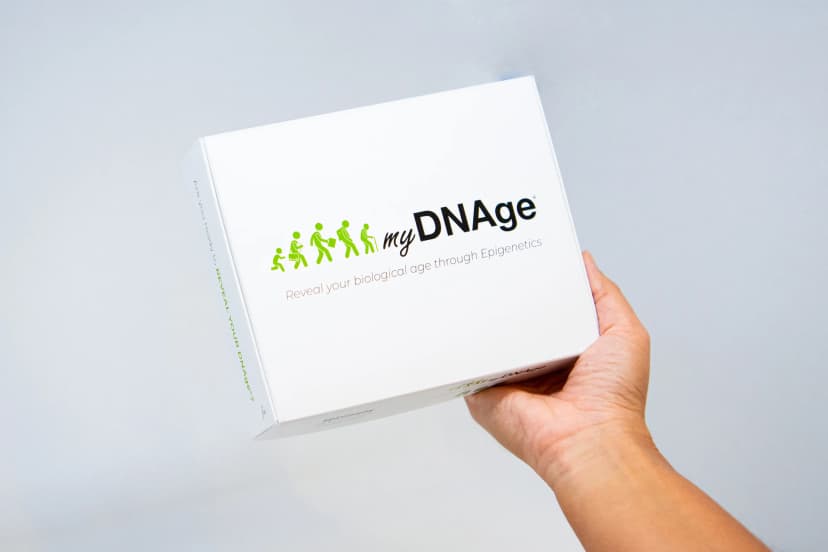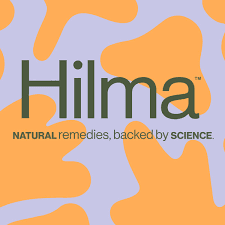As we get older, our bodies need more help to stay healthy and strong. Eating right and staying active are important, but sometimes our diet doesn't give us all the nutrients we need. That's where supplements come in. They can help us fill in the gaps and keep our bodies working well. This article will look at some supplements that can help us age better and live longer.
Key Takeaways
- Multivitamins provide essential nutrients that help our bodies as we age.
- Vitamin D is important for bone health and can be found in sunlight and certain foods.
- Resveratrol, found in grapes and berries, may have anti-aging benefits.
- Curcumin, from turmeric, helps reduce inflammation and supports brain health.
- CoQ10 boosts energy in our cells and supports heart health.
The Role of Multivitamins in Longevity
Essential Nutrients Provided by Multivitamins
Multivitamins are packed with a variety of essential nutrients that our bodies need to function well. These include vitamins like A, C, D, E, and K, as well as important minerals such as magnesium, zinc, and selenium. These nutrients help support various bodily functions, from immune health to bone strength.
How Multivitamins Support Aging Bodies
As we age, our bodies may not absorb nutrients as efficiently as they once did. This is where multivitamins come in handy. They can help fill nutritional gaps, ensuring that our bodies get the vitamins and minerals they need to stay healthy. Multivitamins can also support cellular health, which is crucial for maintaining energy levels and overall well-being.
Choosing the Right Multivitamin
Selecting the right multivitamin can be a bit overwhelming given the numerous options available. Here are some tips to help you choose:
- Look for a multivitamin that includes a broad spectrum of vitamins and minerals.
- Check the dosage to make sure it meets your daily needs without exceeding them.
- Consider any specific health concerns you have, such as bone health or immune support, and choose a multivitamin that addresses those needs.
Taking a multivitamin can be a simple yet effective way to support your health as you age. Make sure to consult with a healthcare provider to find the best option for you.
Vitamin D: The Sunshine Vitamin
Benefits of Vitamin D for Aging
Vitamin D is crucial for maintaining healthy bones because it helps the body absorb calcium. It also has anti-inflammatory and antioxidant properties that support immune health, muscle function, and brain activity. As we age, our ability to absorb vitamin D decreases, making it even more important to ensure we get enough of this vital nutrient.
Sources of Vitamin D
You can get vitamin D from several sources:
- Sunlight: The body produces vitamin D when the skin is exposed to sunlight.
- Food: Fatty fish like salmon, fortified milk, and egg yolks are good sources.
- Supplements: Vitamin D supplements can help you meet your daily needs, especially in winter or if you live in areas with limited sunlight.
Recommended Dosage for Older Adults
The recommended daily intake of vitamin D varies by age. Before age 70, the daily requirement is 600 IU. After age 70, it increases to 800 IU. Some experts suggest that older adults may need even more to maintain optimal health, but the maximum recommended amount is 4,000 IU per day.
As we get older, our bodies may need a boost to meet vitamin D requirements, especially if we don't get enough sunlight or have dietary restrictions.
Resveratrol: The Anti-Aging Compound
How Resveratrol Works
Resveratrol is a polyphenol antioxidant found in grapes, berries, peanuts, and red wine. It is known for activating certain enzymes called sirtuins, which play a role in promoting longevity. Unlike red wine, resveratrol supplements are free of calories and sugar. This makes it a healthier option for those looking to benefit from its anti-aging properties.
Health Benefits of Resveratrol
Resveratrol offers several health benefits, including:
- Promoting youthful gene expression
- Supporting a healthy insulin response
- Encouraging a healthy inflammatory response
These benefits make resveratrol a popular choice for those looking to support their overall health and longevity.
Natural Sources of Resveratrol
You can find resveratrol in various natural sources, such as:
- Red grapes
- Berries
- Peanuts
- Red wine
Including these foods in your diet can help you take advantage of the benefits of resveratrol. However, for those who prefer a more concentrated dose, resveratrol supplements are also available.
Curcumin: The Golden Spice for Longevity
Anti-Inflammatory Properties of Curcumin
Curcumin, the active compound in turmeric, is known for its powerful anti-inflammatory effects. It helps reduce inflammation in the body, which is a key factor in many age-related diseases. By lowering inflammation, curcumin can help protect against conditions like arthritis and heart disease.
Curcumin and Cognitive Health
Curcumin has been linked to better brain health. Studies suggest that it may reduce the risk of age-related cognitive decline. This compound helps by promoting the growth of new brain cells and reducing the buildup of harmful plaques associated with Alzheimer's disease.
How to Incorporate Curcumin into Your Diet
Adding curcumin to your diet is easy. You can use fresh or dried turmeric in cooking or take turmeric or curcumin supplements. Here are some simple ways to include it in your meals:
- Add turmeric to soups and stews
- Mix it into smoothies
- Use it as a spice in curries and rice dishes
Curcumin is a versatile compound that not only adds flavor to your food but also offers numerous health benefits, making it a valuable addition to your diet.
CoQ10: Energizing Your Cells
Role of CoQ10 in Cellular Energy
Coenzyme Q10 (CoQ10) is a substance that your body makes naturally. It helps produce energy in your cells. As you get older, the levels of CoQ10 in your body go down. Taking CoQ10 supplements can help keep your energy levels up. This is important because your cells need energy to work well and stay healthy.
Benefits for Heart Health
CoQ10 is good for your heart. It can make your arteries less stiff, lower your blood pressure, and stop bad cholesterol from building up in your arteries. This helps keep your heart healthy and can prevent heart problems as you get older.
Supplementing with CoQ10
As you age, it might be a good idea to take CoQ10 supplements. Studies show that taking CoQ10 can make you feel better overall, reduce the number of times you need to go to the hospital, and slow down how fast your body and mind get older. Here are some benefits of taking CoQ10 supplements:
- More energy
- Better heart health
- Slower aging process
- Improved quality of life
CoQ10 is an antioxidant that your body makes naturally. Taking it as a supplement can help slow down aging and make you feel better.
Collagen: Supporting Skin and Joint Health
Importance of Collagen for Aging Skin
Collagen is a protein that helps keep your skin firm and elastic. As you age, your body makes less collagen, which can lead to wrinkles and sagging skin. Taking collagen supplements can help boost your skin's collagen levels, making it look younger and more hydrated.
Collagen and Joint Health
Collagen is also important for your joints. It helps keep the cartilage in your joints healthy, which can reduce pain and improve movement. Some studies show that taking collagen supplements can help people with joint pain feel better and move more easily.
Best Sources of Collagen Supplements
There are many types of collagen supplements, including powders and capsules. You can mix collagen powder into drinks or take capsules with water. When choosing a collagen supplement, look for one that is high quality and has good reviews. Some people also get collagen from foods like bone broth and chicken skin.
Collagen supplements can be a simple way to support your skin and joint health as you age. They are easy to add to your daily routine and can make a big difference in how you feel and look.
Folate and Iron: Vital Nutrients for Aging
Benefits of Folate for Brain Health
Folate, also known as vitamin B9, is essential for brain health, especially as we age. It helps in the production of DNA and RNA, the body's genetic material, and is crucial for the formation of red blood cells. Adequate folate levels can support cognitive function and may reduce the risk of age-related cognitive decline.
Iron's Role in Preventing Anemia
Iron is a vital mineral that plays a key role in the production of hemoglobin, a protein in red blood cells that carries oxygen throughout the body. As we age, the risk of iron-deficiency anemia increases, which can lead to fatigue and weakness. Ensuring sufficient iron intake can help maintain energy levels and overall vitality.
How to Ensure Adequate Intake of Folate and Iron
To ensure you're getting enough folate and iron, consider the following tips:
- Eat a balanced diet: Include leafy greens, legumes, and fortified cereals for folate, and red meat, beans, and spinach for iron.
- Consider supplements: If dietary intake is insufficient, supplements can help fill the gap.
- Regular check-ups: Have your blood levels checked regularly to monitor and adjust your intake as needed.
Maintaining adequate levels of folate and iron is crucial for healthy aging. These nutrients support brain health and prevent anemia, helping you stay active and vibrant as you age.
Conclusion
In conclusion, while there is no magic pill to stop aging, certain supplements can support a healthier and longer life. As we get older, our bodies may not absorb nutrients as well as they used to, making supplements a helpful addition to our daily routine. From vitamin D to curcumin, these science-backed supplements can help keep our bodies and minds in better shape. However, it's important to remember that supplements work best when combined with a healthy diet, regular exercise, and stress management. By taking care of our bodies in these ways, we can enjoy a more active and fulfilling life as we age.
Frequently Asked Questions
What are the best supplements for healthy aging?
Some of the best supplements for healthy aging include multivitamins, vitamin D, resveratrol, curcumin, CoQ10, collagen, folate, and iron. These supplements can help support various aspects of health as we age.
How does vitamin D benefit older adults?
Vitamin D helps maintain bone health, supports the immune system, and can improve mood. It's especially important for older adults because their skin doesn't produce vitamin D as efficiently.
What is resveratrol and how does it help with aging?
Resveratrol is a compound found in red wine, grapes, and some berries. It has anti-aging properties and can help protect cells from damage, support heart health, and improve brain function.
Why is collagen important for aging skin and joints?
Collagen is a protein that helps keep skin firm and joints flexible. As we age, our bodies produce less collagen, leading to wrinkles and joint pain. Supplementing with collagen can help maintain skin elasticity and joint health.
Can taking multivitamins really make a difference in longevity?
While multivitamins can't replace a healthy diet, they can fill in nutritional gaps and ensure you get essential nutrients that support overall health and longevity, especially as the body's ability to absorb nutrients decreases with age.
How do I choose the right supplements for my needs?
Consult with a healthcare provider to determine which supplements are best for you. They can consider your health history, dietary habits, and specific needs to make personalized recommendations.
























